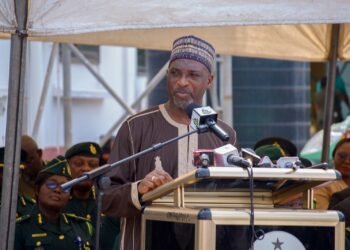Energy Analyst, Kojo Poku, has revealed that there hasn’t been a proper plan for the country’s energy sector.
According to him, there is the need for government to have a proper medium to long-term planning when it comes to the energy sector, which hasn’t be achieved yet. He indicated that without the appropriate plans to rectify the problems within the sector, the situation will persist.
“We’ve never had a proper plan for the energy sector. Till we get into a problem, then we have to do a quick fix… In 2012, we got stuck with power crisis which we had known previously in 2006/2007 – nobody planned for 2012. Now, we got into 2012 and because we were in the crisis and it was dire, we designed all these Power Purchase Agreements that is expensive.”
Kojo Poku
Commenting on a statement by the World Bank country director, which indicated that in the last few years, Ghana has entered into some Purchase Power Agreements that were the wrong types and at the wrong rates and prices and is currently paying dearly for it, Mr Poku stated that this comment has been initially made by civil society, which government paid little attention to.
“I think we live in a county where people put emphasis on what the external people say than what we the civil societies say in Ghana. All the things the World Bank director said, civil society has been saying it for the last three to four years. When you write a paper on that, newspapers and journalists don’t want to report it, but today, because the World Bank rep has said it, it’s news everywhere.”
Kojo Poku
Mr Poku stated that the issue of Power Purchase Agreement, signed between 2012 to 2015, were too expensive. He noted that nobody will argue that it is one of Ghana’s major indebtedness within the energy sector.
“We have said this over and over but it looks like everybody wants to look away… So, he saying it is only a reiteration of what civil society in Ghana has been saying for the past four years.”
Kojo Poku
In spite of the current challenges within the energy sector, the energy analyst explained that government’s commitment is laudable although it is not enough. He revealed that the ministry of energy has been doing some work, despite the issue being a multi-faceted problem.
“Now that we are talking about generation, one of the biggest problems we have now is fuel, availability of gas to power these generation plants. Secondly, you need money to basically pay the existing IPPs that we owe.”
Kojo Poku
Challenges within the energy sector
Elaborating on the problems encountered in the sector, Mr Poku noted that one of the problems has to do with government accepting IPPs to come in and build plants for them to recoup monies after production is made. With this, he indicated that no investor will accept that.
“The problem you have with existing companies is that, you procure the initial PPAs from them very so expensive, so when you are now negotiating with them you are basically negotiating down from a very expensive PPA… There is commitment but there isn’t enough commitment. The situation we find ourselves, where we are not paying the existing IPPs, it makes it difficult for people, new entrants and investors to come in and put their money in the energy sector without giving them the guarantee that they need.”
Kojo Poku
Mr Poku explained that when government is unable to pay the IPPs, the country potentially faces fuel scarcity, as there isn’t enough natural gas for all these plants that produce to work with.
“… So, it is a problem that needs 120% commitment. Now, we are giving it about 50% and I think there should be more that needs to be done.”
Kojo Poku
READ ALSO: We Are Not Going To Cook Though The Minister Has Spoken- Ashanti Region Caterers



















